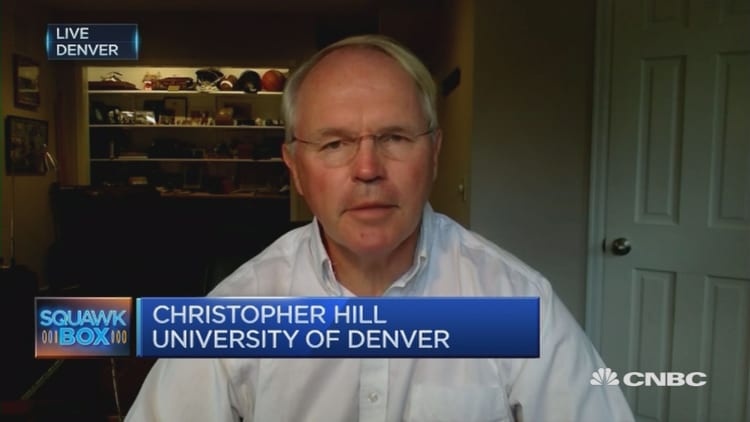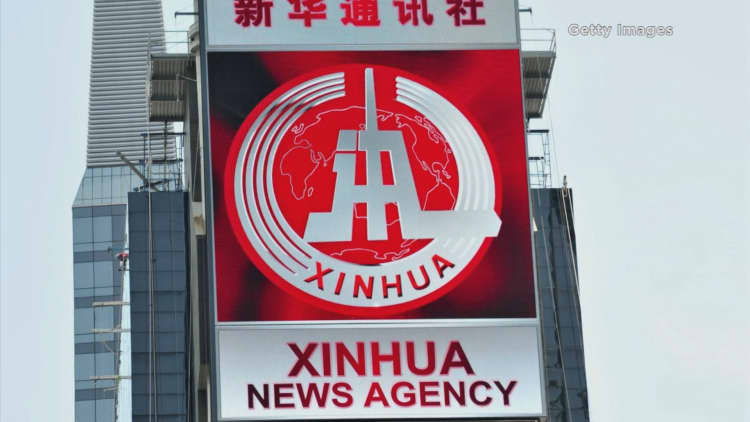The U.S. will "pay the price" for its decision to put an advanced missile defense system in South Korea, China's most influential daily newspaper said on Saturday.
In a commentary, the People's Daily, the official media outlet of the Chinese Communist Party, said, "If the United States and South Korea harm the strategic security interests of countries in the region including China, then they are destined to pay the price for this and receive a proper counter-attack."
The commentary was published under the name Zhong Sheng, meaning "voice of China," a non de plume that is often used to give the party's views on foreign policy.
Since South Korea said in July that it would host a U.S. Terminal High Altitude Area Defense (THAAD) anti-missile system, China has made clear its opposition to the deployment on the grounds that it could compromise Chinese security and inflame tensions with volatile neighbor North Korea.
"Like any other country, China can neither be vague nor indifferent on security matters that affect its core interests," the commentary said.

Saturday's commentary followed a call by Chinese Foreign Ministry spokesperson Geng Shuang on Friday for the U.S. and South Korea to halt the deployment, which a report in the People's Daily said would be at a golf course in the southeastern part of South Korea.
"We keep repeating our position that the deployment of the THAAD missile system by the United States and the ROK [Republic of Korea] will not address the concerns of relevant parties, contribute to denuclearization on the Korean Peninsula, or aid the peace and stability of the Peninsula," Geng said, according to a report on Saturday in the People's Daily.
"The deployment will severely damage regional strategic security interests and harm the regional strategic balance."
Geng said China would take "necessary measures to safeguard its national security," a line the country has repeatedly used, without specifying the nature of the measures.
This week, Daniel Russel, the U.S. assistant secretary of state for East Asia, told a congressional hearing that the timing of the deployment was being accelerated to "as soon as possible" due to the increasing pace of North Korea's missile tests. The isolated nation conducted its fifth nuclear test on September 9, following a number of missile tests in the previous months, and its fourth-ever nuclear test in January.

The U.S. has urged China to react more strongly to North Korea's tests, given China is one of the country's few allies. But China has countered that the U.S. was responsible for ramping up tensions with North Korea, and said it preferred talks over sanctions as a means of dealing with the rogue state.
In a commentary on September 14, the People's Daily said,"The U.S. has no right to pass the buck and put the blame on other countries, especially when the essence of this issue is a conflict between the U.S. and North Korea," adding that the THAAD deployment was "mostly an excuse to further [the United States'] own interests."
South Korea, meanwhile, has accused China of doing too little to reign in North Korea, which it called the true cause of destabilization in the region, and insisted that hosting THAAD was purely a defensive measure against North Korea.
Russel told the Congressional committee that the U.S. was in ongoing discussions with China on new United Nations' sanctions against North Korea and that while there had been a vast improvement in cooperation on sanctions, there was "an awful lot more" Beijing needed to do to help tighten the screws on its neighbor.

